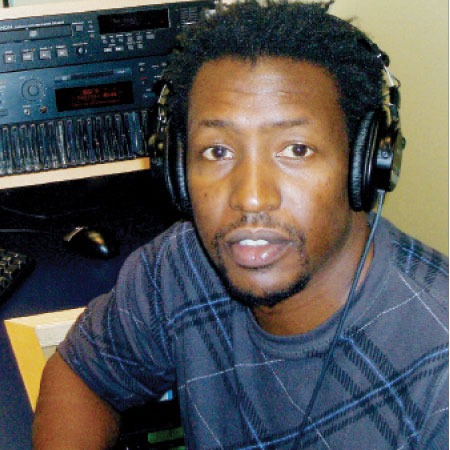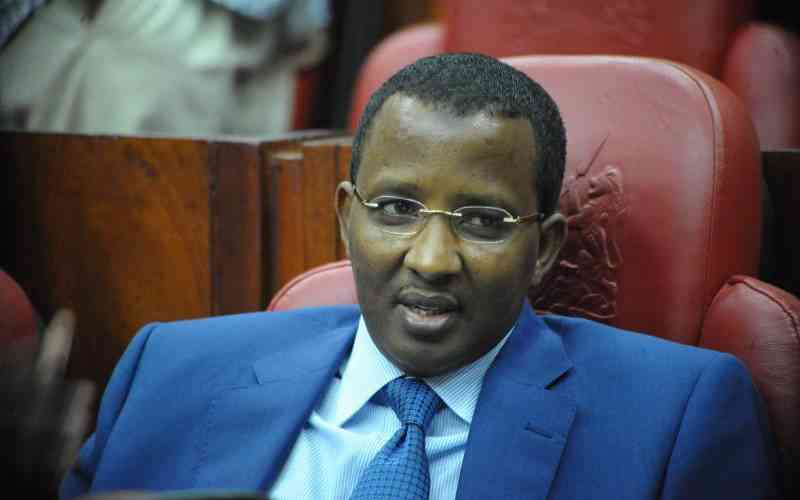By JENIFFER MUCHIRI
NAIROBI, KENYA: How best does one describe their homeland? The title of Mukoma wa Ngugi’s novel, Nairobi Heat, raises one’s curiosity to find out what the writer has to say about Nairobi.
Mukoma is the son of Ngugi wa Thing’o and this alone would arouse readers’ interest in his novel if only to get more gems from the son of Kenya’s foremost literary writer. Readers would assume the genius of Ngugi wa Thiong’o’s pen would naturally rub off on the son.
For patriotic Kenyans, however, this novel would not just be a disappointment but an insult too. Granted, Nairobi is not one of the safest or cleanest cities in the world, but for Mukoma to present a Nairobi that has not a single positive trait is, to say the least, sickening.
Nairobi Heat, a thriller, tells the story of an African American detective who leaves America for Nairobi to resolve a case involving the murder of an American girl whose body is found in front of an African professor’s house in an American suburb.
Detective’s investigations
The detective’s preliminary investigations land him in Nairobi where he works alongside a Kenyan detective in an effort to unravel the murder case. The case is difficult because the officers have no way of identifying the murdered girl but an anonymous phone call asking the American detective to seek answers in Nairobi sets in motion a fast moving detective story.
The detective discovers that the murder case is related to the 1994 Rwanda genocide and a well-choreographed money making cartel of Rwandese refugees in Kenya.
The African professor on whose porch the girl’s body is found is actually of Rwandese origin and is hailed as one of the people who contributed greatly in saving people’s lives by offering them refuge in his school in Rwanda.
Safety story
The detectives, however, discover that the professor used the safety story as a ruse to attract hundreds of people to his school and these were butchered by his accomplices in the forests as they walked in search of the oasis of safety that was rumoured to be his school. After the genocide, he moves to America and is in charge of a foundation that raises money to cater for Rwandese refugees, which he runs together with other people based in Kenya.
The murder of the young lady in America, which is traced back to the professor, is just one of the many cover-up strategies that the he uses to avoid being unmasked and to ensure that he maintains his position in the foundation and therefore retain control of the donors’ money.
The novel enables Mukoma to explore greed and examine how this can lead the most trusted person to commit untold crimes as happens in the case of the teacher who aids the murder of the very villagers who had trusted them with their children in the school prior to the genocide.
Raising funds
In addition, the story points at how unscrupulous people set up foundations, agencies, and organisations in the name of raising funds for humanitarian aid but in actual sense they do it just to enrich themselves. The foundation that the professor and his accomplices run has to pay some of the refugees to keep quiet about his role in the massacre of hundreds of thousands of Rwandese. The novel thus reminds us of the horror that was the Rwanda genocide and in a way points to the plight of Rwandan refugees in Kenya, most of who live in abject poverty.
Stay informed. Subscribe to our newsletter
However, Mukoma’s image of Nairobi in this novel is unnecessarily exaggerated. He paints a city whose defining features are seedy bars, prostitution, violence, tribalism, alcoholism, crime, corruption, and squalor. The American detective’s work takes him to the slums of Mathare where his first encounter with ‘Africa’ is an attempted rape of a school girl and the subsequent murder of the criminals involved.
He walks along the disorganised streets of Eastleigh, visits the violence-packed sleazy bars of Eastern Nairobi, and gets to fight would-be killers in smelly urinals. Indeed, as the protagonist says of his belief about Africa at the beginning of the novel, Mukoma presents a picture of Nairobi as ‘a land of wars, hunger, disease and dirt.’ The narrator’s description of Nairobi soon after he arrives at the airport is distasteful. He says that he was suddenly ‘surrounded by blackness’ and the heat was worse than that in New Orleans in summer as it was ‘humid, thick and salty to taste.’ Surely, Nairobi is a city in Africa and the people are black. What did the detective expect? Regarding the climate, it is annoying to read Mukoma lying about Nairobi.
The narrator adds, for good measure, that as soon as he landed at the airport, he found himself among a ‘wall of people shouting and heckling, selling newspapers, phone cards, even boiled eggs.’ Surely, we may be poor and often enterprising but I am yet to come across somebody shouting ‘mayai boiro na kachumbari’ at Jomo Kenyatta International Airport. The language that the writer ascribes to the protagonist, who is also the first person narrator, overflows with American slang, swear words and unprintable. This kind of language may be normal for an American detective but when Mukoma assigns the same to characters in bars and streets in Nairobi the story ceases to be credible. Detectives in Nairobi do not use swear words the way an American detective in Chicago would.
Issues addressed
Mukoma may be the son of the father of Kenyan literature, but it seems that this relationship is as far as their similarity goes. The issues they address in their novels and the style of narration are worlds apart. Mukoma’s writing departs from his father’s in that while the elder Ngugi is concerned with cultural nationalism and the politics of the day in post-independence Kenya, the younger Ngugi chooses to write about a contemporary Kenya in relation to global issues, focusing on international crime. In a way, where Ngugi wa Thiong’o comes across as a patriot advocating for fairness and good governance Mukoma wa Ngugi opts to take a skewed look at the land of his forefathers.
It would certainly be absurd to expect Mukoma to write like his father, considering that they belong to different generations and social-cultural experiences but it would not be too much to ask Mukoma to shed his disdainful representation of Kenya. Therefore, if you pick a copy of Nairobi Heat thinking that you will be reading a new version of Ngugi wa Thiong’o, you will be disappointed.
Nairobi Heat would have read better if Mukoma had created an unbiased picture of Nairobi.
Muchiri teaches Literature at the UoN. [email protected]
 The Standard Group Plc is a
multi-media organization with investments in media platforms spanning newspaper
print operations, television, radio broadcasting, digital and online services. The
Standard Group is recognized as a leading multi-media house in Kenya with a key
influence in matters of national and international interest.
The Standard Group Plc is a
multi-media organization with investments in media platforms spanning newspaper
print operations, television, radio broadcasting, digital and online services. The
Standard Group is recognized as a leading multi-media house in Kenya with a key
influence in matters of national and international interest.
 The Standard Group Plc is a
multi-media organization with investments in media platforms spanning newspaper
print operations, television, radio broadcasting, digital and online services. The
Standard Group is recognized as a leading multi-media house in Kenya with a key
influence in matters of national and international interest.
The Standard Group Plc is a
multi-media organization with investments in media platforms spanning newspaper
print operations, television, radio broadcasting, digital and online services. The
Standard Group is recognized as a leading multi-media house in Kenya with a key
influence in matters of national and international interest.






